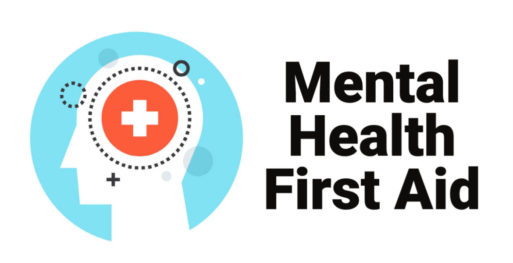
(7-14-22) The National Council for Mental Wellbeing (formerly the National Council for Behavioral Health) said criticism of its Mental Health First Aid training program is “flawed.”
MHFA was recently lambasted in a report issued by the Manhattan Institute, a conservative New York think tank that frequently criticizes government spending. The National Council represents the nation’s mental health care industry and promotes/sells MHFA training programs.
MHFA courses are extremely popular and have been taken by more than two million Americans. Congress recently included $120 million for MHFA training in the Safer Communities Act, along with another $64 million in next year’s budget.
In a formal statement, the Council said Carolyn D. Gorman, the author of Mental Health First Aid: Assessing the Evidence for a Public Health Approach to Mental Illness, did not understand the purpose of MHFA training. Gorman wrote that there was scant evidence that MHFA benefited Americans with serious mental illnesses.
The National Council’s response:
We agree that more needs to be done to ensure that people with mental health challenges, especially those with serious mental illness, have access to treatment. With that in mind, we wish the author had come to us while developing this report. We would have welcomed the opportunity to reconcile the inaccuracy of the report’s fundamental premise – what Mental Health First Aid (MHFA) is and what it seeks to accomplish.
Unfortunately, the flaw in the basic premise impacts the validity of the report’s overall conclusions. The report faults MHFA for not solving the crisis of untreated mental illness in the United States. This represents a fundamental misunderstanding about MHFA – what it is and what it seeks to accomplish.
MHFA was never designed to reduce the prevalence of mental illness or improve access to high-quality treatment and services. So it is wrong to measure the effectiveness of the program against those objectives, as the report does.
MHFA has one clear and simple goal: to give individuals the skills they need to recognize and respond to signs and symptoms that indicate someone might be experiencing a mental health or substance use challenge and guide them to appropriate care. That is the only valid objective to measure the program’s effectiveness, and the results of peer-reviewed studies have demonstrated the program is effective by that measure.
The mental health system in this country has significant challenges, and we all must work together to address them. The National Council for Mental Wellbeing works tirelessly toward this goal. While important strides have been made in the last decade, much work remains to ensure that everyone who needs treatment for mental illness can access the care they need.
(Carolyn Gorman responds: The Council suggests the point of the MHFA program is to give people the skills to recognize mental illness. I directly acknowledge and address this objective in my report in multiple places. While some studies do in fact find a *statistically* significant increase in recognizing some specific symptoms of specific illnesses, those findings are much less *practically* significant—baseline rates of recognition for mental illness are incredibly high even before MHFA training. To make a comparison, this is like going from getting a B+ grade on a school final exam to an A- or an A. We’d still consider a B+ student competent and proficient, and wouldn’t make the student re-take the whole class. I am grateful for the National Council’s openness to dialogue in the future as they do important work, and I’m sure there is much we could agree on elsewhere and dually champion.”



